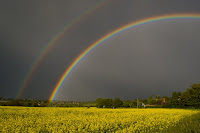I have been reading a lot of grants lately, and working with other grant writers. I’ve seen good writing and not-so-good writing. Rather than give you another list of grant writing do’s and don’ts, I thought I share some things that grant writing is not.
Grant writing is not…..a scavenger hunt. The readers should not have to hunt through your narrative to find the key features of your project design. It should be well-organized and clear.
Grant writing is not…..creative writing. If you have been reading this blog or listening to any of our Tips from the Grant Goddess shows on BlogTalkRadio you know that I often talk about the creative side of grant writing; however, that is different than creative writing. Grant writing is based on providing the information the funder wants. Don’t make the mistake of saying whatever you want to say, regardless of what has been asked.
Grant writing is not…..the same for all funding sources. I run into people all the time who say, “Yeah, I’m a grant writer, too.” Upon further conversation, I learn that he has written a few small foundation grants, sometimes successfully. Recently, a potential client chose to go with another writer who had lots of experience with small private grants, but almost no experience with large federal proposals, and absolutely no experience with the particular program in question. As the deadline approached, the client learned the hard way that there are different kinds of grant writing.
Grant writing is not…..all about you. The writer should be invisible so the message can take center stage. This is not the time to impress the reader with your education or your ability to spin a fancy yarn. Remember this…if the reader is thinking about how good your writing is (or isn’t), he’s not focused on your message, and that’s not good.
———————————–
Related posts and articles:
Working with a Grant Writer: You Get What You Pay For
Do I Really Need a Grant Writer?
Is Grant Writing Success Really Just About Luck?
Published by Creative Resources & Research http://grantgoddess.com



